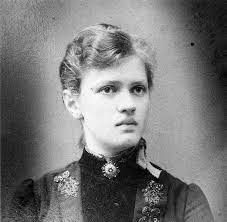Weber, Marianne

Bio: (1870-1954) German sociologist. Marianne Weber studied at the University of Heidelberg. She is best known for editing and publishing the writings of her husband, Max Weber, which were published in ten volumes after his death. However, Marianne Weber herself had a huge impact on sociology with her writings and her activism. Her books and articles, as well as her activism and political career, were marked by the struggle for women's rights. She joined a feminist organization while still studying in Heidelberg, and her work was greatly influenced by her trip to the United States in 1904, where she met many feminist authors and reformers, including Jane Adams. Weber advocated for the education of women so that they could achieve intellectual development and achieve financial independence through paid work.
In the essay "On the Evaluation of Housework" (1912a), she described the double burden that women experience because they perform poorly paid manual work, and in the household, they take care of the family and the house. This double burden leads not only to economic exploitation but also to a loss of self-esteem in women. Weber advocated for gender equality and the adoption of marriage laws that will determine a fixed amount of the husband's income that will be allocated to the woman for her use. She fought for both legal reform and cultural reform, which would change marital customs. In the article "Authority and Autonomy in Marriage" (1912b), Weber argues that marital relationships, in which there is the subordination of women, are harmful to both women and men.
In "Women and Objective Culture" (1913), Marianne Weber criticizes Simmel's view that men create an objective culture and that women create subjective culture. She believes that there is no metaphysical difference between men and women and that, despite some differences, there is an essential similarity between the two sexes. Both women and men possess rationality, objectivity, and orientation to goal attainment, that is, all the qualities necessary to create an objective culture. Women are forcibly excluded from the creation of objective culture through social regulations, and thus a huge contribution that women could make to objective culture is lost. Although Marianne Weber has never had an academic career, she has had a huge impact on spreading awareness of women’s rights. She was the president of the League of German Women's Associations, was the first woman to be elected to parliament in Germany, and was promoted to honorary doctor of the University of Heidelberg in 1924.
Theoretical approaches
Feminism, SociologicalMain works
Fichtes Sozialismus und sein Verhältnis zur Marschen Doktrin (1900);
Beruf und Ehe (1906);
Ehefrau und Mutter in der Rechtsentwicklung (1907);
Die Frage nach der Scheidung (1909);
Zur Frage der Bewertung der Hausarbeit (1912a);
„Autorität und Autonomie in der Ehe”, in Logos (1912b);
„Die Frau und die objective Kultur“, in Logos (1913);
Frauenfragen und Frauengedanken (1919);
Max Weber. Ein Lebensbild (1926);
Die Idee der Ehe und die Ehescheidung (1929);
Die Frauen und die Liebe (1935);
Erfülltes Leben (1946);
Lebenserinnerungen (1948).
Works translated into English:
„Authority and Autonomy in Marriage“, in Sociological Theory (2003, in German 1912b);
Max Weber: A Biography (2017, in German 1926).

